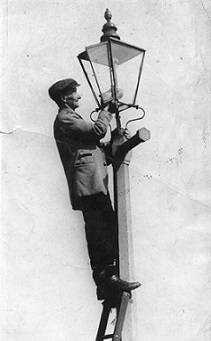In the modern age, there are a dizzying variety of occupations. While modern technology and progress have either taking over many of the menial jobs or made them obsolete, there are always new occupations being created. One job dies, another crops up. The unfortunate aspect of modernity is that many occupations have driven a wedge between people.
Often the customer is hundreds or thousands of miles away at the end of a phone call or e-mail. Or the business is so large and based on volume that even a frequent customer is never really more than a face with no name. Of course, there are jobs where the old world relationship exists, but it’s increasingly rare. In the “olden days” as my daughter would say when she was younger, it was pretty common to be on a first-name basis with a proprietor. To walk into a store and have half your needs known before you’ve reached the counter was the norm.
Because of this intimacy, things could be purchased “on the cuff” or placed on the tab or even bartered for. It was a romantic era, to say the least, but unpractical in this day and age in any community of modest size or larger.

In this article, I will showcase a number of occupations from yesteryear that have been almost forgotten. Some have altogether disappeared. There may be some that exist in remote parts of the world in some small village or hamlet. In some cases, they exist because the city wishes to retain its history, London for example. Some have been replaced with a modern equivalent. Others have been entirely replaced by a machine or robot. Some of you may be old enough to have childhood memories of some of these occupations, and by all means please share them. These romantic occupations were executed by unsung heroes. Nameless people that served the community, helped it progress and make the city of New Bedford what it is today, a city of almost 100,000.
As always, the images are culled from the generosity of the the New Bedford Whaling Museum and Spinner Publications. Without their kindness, these articles would be dry, boring texts. They breathe life into the articles and do a much better job helping with visualization than any cleverly designed assemblage of words into a sentence could. Please consider them for patronage. In addition, these articles are made possible through sponsorship. If you would like to help to continue to shine light on the region’s local history and enjoy articles like this, please consider sponsoring an article by contacting us at: NBGarts@gmail.com. We will gladly research and write an article on your family’s history, home, place of business or unrelated topic. Not only do you get the visual advertising benefits of sponsorship, but you are contributing to the arts and improving culture and society no matter how slight.
 New Bedford Guide Your Guide to New Bedford and South Coast, MA
New Bedford Guide Your Guide to New Bedford and South Coast, MA









I remember the typesetters using Linotype machines at the Standard-Times when I worked there in the 1970’s. It was still on Pleasant Street then. I also set pins at the Boy’s Club. They had four lanes in the basement next to the woodworking shop. You had to set pins before you could bowl. Setting was easy. Dodging the pins as they flew up was not… I can add one more, coal man. My grandparents used to have coal delivered down the chute for the stoves. They used the stoves to heat the house and cook at their place, 44 Reynolds Street.
Great stuff Len! Thanks for reading AND sharing!
one of My husband Jim Heys’ first jobs was a pinsetter at a small bowling alley on Rodney French Blvd in New Bedford
Was told when I was a baby was a man named al Deneault who would wash baby diapers and return them next day all over the city
My father was a pin setter as a boy. Another of his jobs was to blow out the gas lamps in the morning. He also worked at a livery stable, running the horses to make sure their wind was sound. As for me, I ran a switchboard one summer. It was an experience. One time I was trying to connect a call for a man who seemed to think all he needed to tell me was a person’s first name, and I’d miraculously know who he meant. He didn’t realize I could hear him when he told someone else I was stupid. Another time, I was the one who forgot that someone could hear me. I accidentally disconnected someone and swore. Fortunately the person of the line thought it was funny. Dealing with people can be, well, intersting.